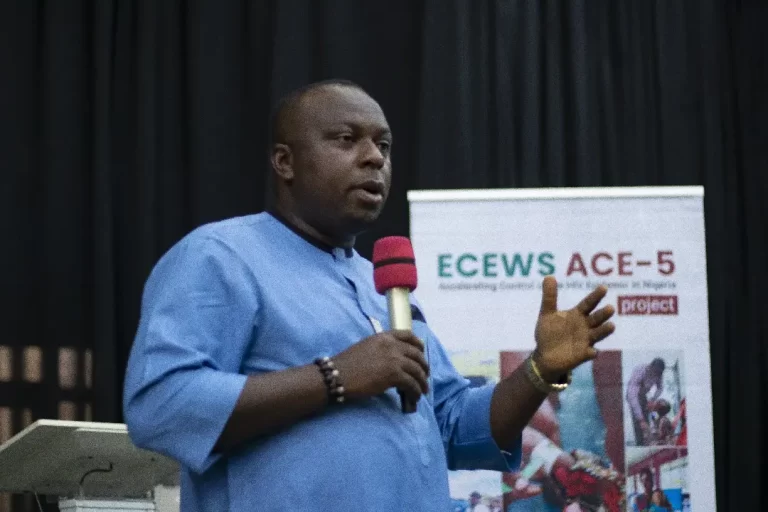Akwa Ibom State Agency for Control of AIDS, AKSACA, has urged traditional rulers and other community leaders in the state to join hands in stemming the tide of HIV/AIDS in their communities.
Arogidigba Global Journal recalls that Akwa Ibom State has 5.5 per cent HIV prevalence, which is the highest in Nigeria, according to the NAIIS survey conducted in 2018.
The project manager of AKSACA, Dr Enobong Akpan, during a sensitisation workshop tagged “HIV/AIDS and Community Leadership: Role of Stakeholders,” for traditional rulers and stakeholders in Uyo senatorial district said effective communication of accurate HIV/AIDS information by community leaders would engender increased access to prevention and treatment services.
Akpan noted that the workshop, organised in partnership with Excellence Community Education Welfare Scheme, ECEWS, was aimed at empowering the leaders of traditional institutions and community gatekeepers on how to play an effective role as stakeholders in ending HIV as a public threat by 2030.
He encouraged the traditional rulers to shun various community-based behaviours and attitudes, including sociocultural practices that encourage HIV transmission.
While urging them to be intentional in promoting practices that discourage the spread of HIV, the manager noted that communities are most socially impacted by the virus, as issues of stigma and discrimination, unprofessional TBA practices, indiscriminate drug use, female genital mutilation, and the absence of policies and relevant laws to protect the vulnerable are high in the communities.
“There is therefore need to intensify our ongoing community-based efforts through health awareness and demand creation, and facilitation of differentiated service delivery to improve uptake and retention of preventive services like PrEP, PEP, etc. I wish to very respectfully thank you all once again for honouring this invitation to contribute and take responsibility as stakeholders in the fight against HIV,” he said.
Also speaking, the Commissioner for Health, Professor Augustine Umoh, explained that rural areas must adopt proactive measures to facilitate prevention, treatment and stigma reduction.
The traditional rulers, in an interactive session at the workshop, agreed that HIV/AIDS prevention must be given priority attention to effectively address the epidemic in their communities.
Eteidung Robert Benedict Udoh, the village head of Ibesikpo Asutan, who represented the paramount ruler, harped on the need for vigorous sensitization of HIV spread at the grassroots, even as he called on the government to regulate the activities of traditional birth attendants in the state.
The representative of the Commissioner for Local Government and Chieftaincy Affairs, Frank Archibong, commended AKSACA for the initiative and promised that the ministry would collaborate to ensure subsequent workshops in other senatorial districts.
